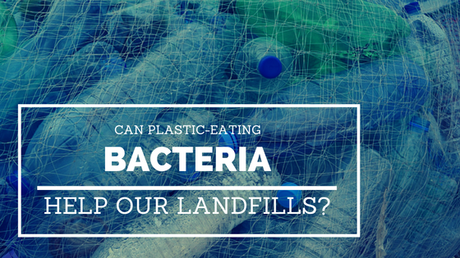
According to an article by Eva Botkin-Kowacki in the March 10, 2016 issue of The Christian Science Monitor, it appears that there was a bacterium that consumes plastic discovered inside a recycling plant. The article, “Researchers Find Plastic-Loving Bacteria in Recycling Plant,” mentions that more than “311 million tons of plastic is produced across the globe annually” while only about 10% of that makes it into a recycling plant.
While you think about those statistics, also remember that much of those 311 million tons of plastic wind up in landfills, in our oceans or streams, and as litter strewn about.
A Possible Breakthrough
At a recycling plant for plastic bottles in Osaka, Japan, it appears that there is a strain of bacteria that has adapted to consuming poly ethylene terephthalate (PET). In the March 11, 2016 issue of Science, a group of researchers found that the bacterium, Ideonella sakaiensis 201-F6 can break down PET in just six weeks.
Even though the team discovered that there is a type of bacteria that eats PET, it’s not time to celebrate. Further studies need to be conducted prior to implementing plastic-eating bacteria in every recycling center and landfill, but this initial finding is exciting.
Could Plastic-Eating Bacteria Help Our Oceans
In principal, yes, plastic-eating bacteria could help withe the huge problem we have in our oceans with plastic buildup. However, it’s important to remember two things. First, we’ve engineered our plastic products to be durable and to last. Naturally this creates a problem, because plastic is not quite so biodegradable. (Hence, why it’s a problem for us). The plastic-eating bacteria only eats PET – that plastic that has the number “1” on the bottom. Unless scientists fiddled with the DNA of the plastic, there’s no guarantee that the bacteria strain will do its job 100% of the time. In fact, the bacteria could mutate on its own, creating challenges.
What Can You Do?
You can spread the word about these findings and learn more about how the research is progressing. You can encourage scientists to continue this line of research and your local land fills to implement any new technology that comes out of the research. You can write your representatives asking them to support this research.
What do you think about these findings? Will they help to save our environment from the perils of the mounting trash problem?

